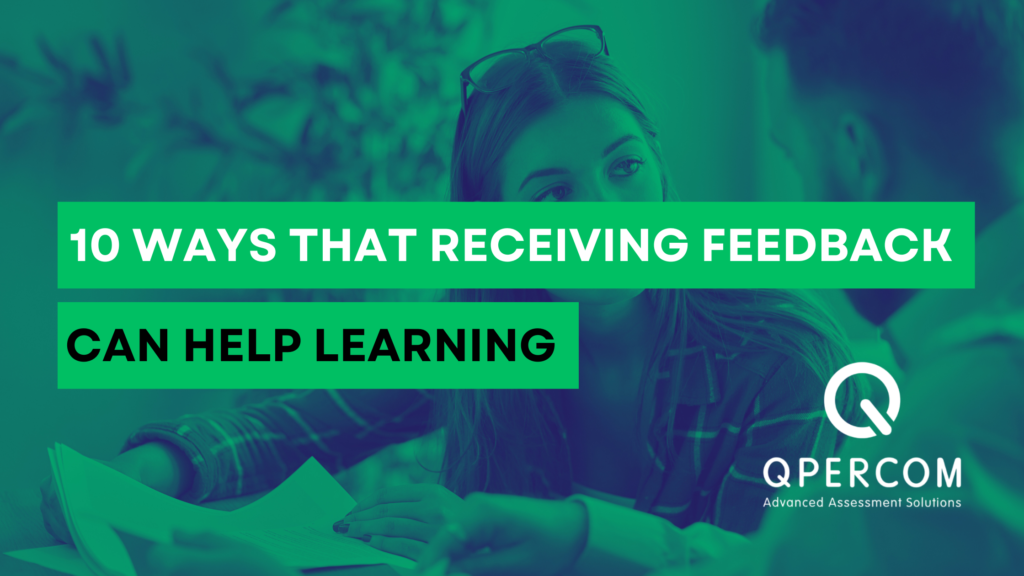Education goes beyond textbooks and lectures; it thrives on feedback. Feedback is defined as “specific information about the comparison between a learner’s observed performance and standard, which is given with the intention to improve the learner’s performance (1).” Feedback guides learners towards excellence by enriching their learning experience, helping to narrow the gap between their actual and desired performance, and reinforcing good practice (2). Despite the clear advantages, it seems that learners struggle to gain an optimal experience from feedback. Traditionally, the concept of feedback has focused on teachers and how they should be delivering it, but not so much on how learners should be receiving it. This leaves a knowledge gap in the awareness of how to receive and utilise feedback. Algiraigri composed a list of ten tips for learners on how to receive feedback effectively (3). Let’s break them down below:
1. Self-Assessment
Panadero and his colleagues defined self-assessment as a variety of techniques through which learners describe and evaluate the quality of their own learning process (4). It is a widely accepted method in the continuing professional development cycle (5). However, it’s not a secret that even physicians struggle with self-assessment as individuals have a limited ability to do so accurately (6). Normally, when we are told to assess our own performance, we look at the experience as a whole. To avoid this generalisation, try to break down the performance into separate sections and review it based on those instead. In this case, the whole is not greater than the sum of its parts.
The whole → “I didn’t do too well in the consultation.”
The sum of its parts → “My history-taking was very in-depth and I covered a lot of aspects, but I need to work on my time-management skills to have enough time to think of a diagnosis.“
2. Everyone Benefits From Feedback
It’s great to receive feedback no matter what stage of learning we are at. When our performance is observed by others, they are bound to find areas of improvement that we can’t see ourselves (7). Realising that everyone has weaknesses and their own blind spots, will encourage you to learn from your own feedback.
“I didn’t realise before that I tend to talk very fast with my patients!”
3. Build A Rapport With The Educators
Having a good relationship with educators and teachers will build trust and make the process of receiving feedback much simpler. Being approachable and likeable encourages students to ask for feedback. Furthermore, receiving feedback regularly strengthens the connection between the student and educator (8).
“I’m not afraid to ask the consultant questions because I feel comfortable with them.”
4. Ask For Feedback
Feedback can often be omitted in busy medical settings, but being proactive and actively seeking feedback will lead to positive outcomes compared to students who don’t attempt to ask (3). Remember, you don’t ask, you don’t get.
“If you’re not too busy, could you let me know what I can improve on?”
5. Be Confident And Express Gratitude
Take ownership of the feedback you are given and thank the educators for their time. Even positive feedback is important for growth as it offers an awareness of behaviours that should be continued. Successful students don’t stop when they are good, they keep working on their skills to get better everyday.
“I’m confident about my history-taking skills, but I should keep practising to improve even more.”
6. Watch The Feelings
In the face of negative feedback, try to see it as an opportunity for growth and improvement as opposed to a failure. It is important to make mistakes and be aware of them through feedback. The feedback should not be personal but actionable in relation to behaviours observed.
“I’m disappointed I forgot to signpost in the consultation, but at least I will remember next time.”
7. Create An Action Plan
Use constructive feedback to your advantage and make a list of things you need to work on. It is important to be able to articulate goals in writing and be able to pin-point exactly where gaps in knowledge are (9).
“I am aware of where I need practice as I have it written in front of me.“
8. Acknowledge Differences
Be aware that different generations were raised with different morals and values. Feedback wasn’t deemed important by the older generations compared to generations of today (10). Coming to terms with this may make it easier to know who to approach or how to ask for feedback.
“Perhaps I will ask him for feedback later when he isn’t as busy.”
9. Be Specific About Your Feedback
Many learners feel that the feedback they receive isn’t very helpful because it is often too general (11) – “keep up the good work!” Have the courage to probe deeper and ask what specifically was good or bad about your performance.
“What part of my inspection was particularly good?”
10. Always Be Ready
Feedback comes in many forms and not always when you expect it. So always be ready to take it in whether it is positive or negative. You got this!
“I got this!”
Feedback informs, motivates, and guides improvement in learning. Hopefully, these ten tips offer invaluable guidance for learners in receiving and utilising feedback effectively. By embracing these principles, learners can turn feedback into actionable insights, propelling their journey toward excellence and lifelong learning.

